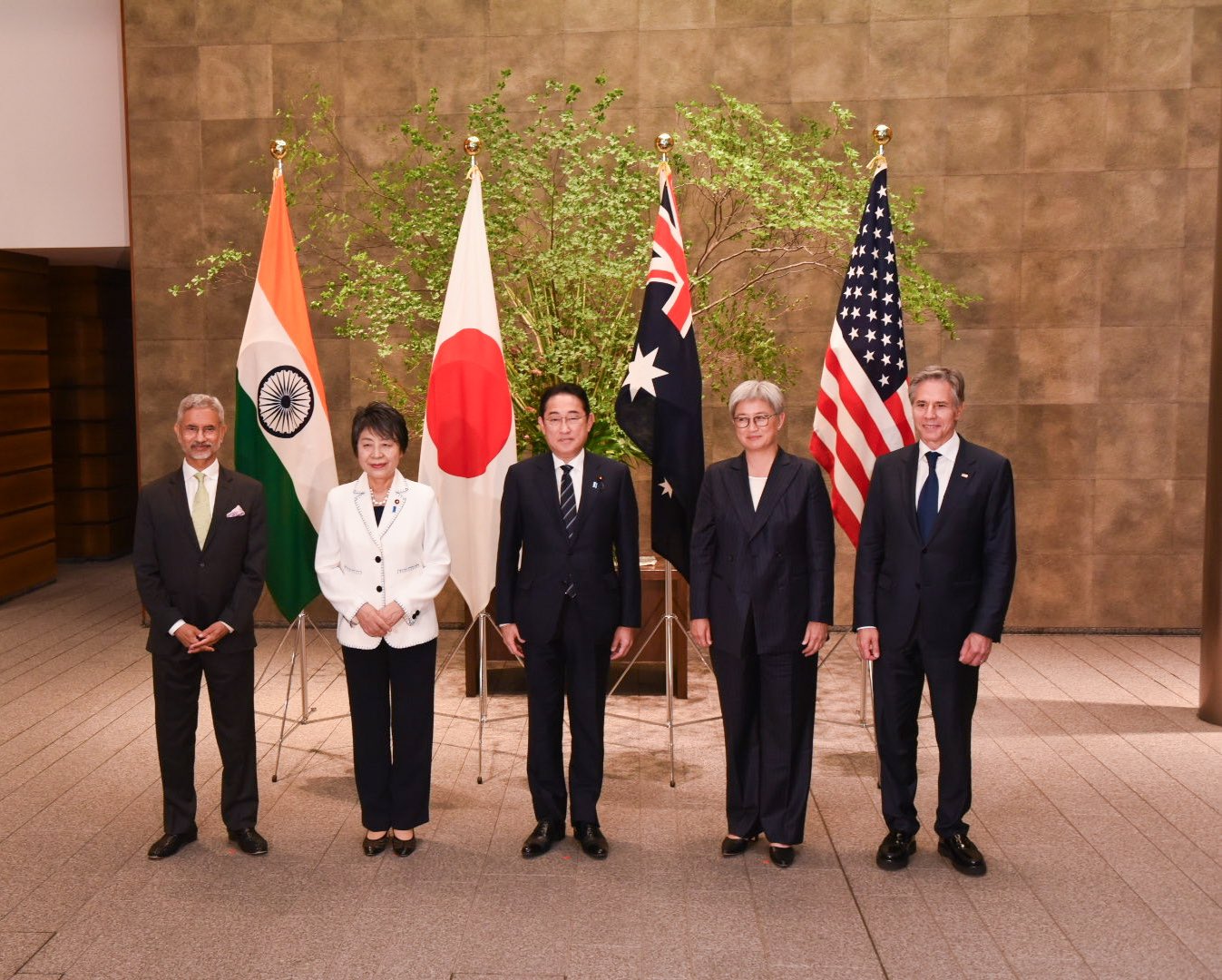
Quad expands Maritime Domain Awareness to Indian Ocean amid concerns over Chinese influence
NEW DELHI : In a significant move, the four-nation grouping Quad on Monday announced a plan to expand its ambitious Indo-Pacific Maritime Domain Awareness (IPMDA) Programme to the Indian Ocean region that would facilitate monitoring of the strategic waters.
The announcement following a Quad foreign ministerial meeting came amid concerns in New Delhi over China’s growing forays into the Indian Ocean which is largely considered as the backyard of the Indian Navy. The Quad also said that it was working for early operationalisation of its South Asia programme through India’s Information Fusion Centre for the Indian Ocean Region.
The meeting was attended by External Affairs Minister S Jaishankar, US Secretary of State Antony Blinken, Japanese Foreign Minister Yoko Kamikawa and Australia’s Penny Wong. In a joint statement, the foreign ministers said the Quad is determined to develop a free and open maritime order consistent with the UN Convention on the Law of the Sea (UNCLOS) in the Indian and the Pacific Oceans and it would enhance collaboration with regional partners for this purpose.
“In line with such efforts, we intend to geographically expand the Indo-Pacific Partnership for Maritime Domain Awareness (IPMDA) to the Indian Ocean region,” it said. “We are working for early operationalisation of the South Asia programme through the Information Fusion Centre-Indian Ocean Region (IFC-IOR) in Gurugram, India. Furthermore, we are incorporating effective technical cooperation in close consultation with regional partners,” it said.
The IPMDA was announced in May 2022 which allowed the partner countries to fully monitor the waters on their shores and help ensure peace and stability in the region. Under the initiative, data is being supplied to counter illicit maritime activities and respond to climate-related and humanitarian events.
The Indian Navy established the IFC-IOR in 2018 to effectively keep track of the shipping traffic as well as other critical developments in the region under a collaborative framework with like-minded countries.
The foreign ministers said the Quad continues to advance the development of a “trusted, secure and robust” telecommunication network and announced a plan to roll out Open Radio Access Networks (Open RAN) in the island nation Palau. In his remarks at a press conference, Jaishankar said the Quad is not a ”talk shop” but a platform that generates practical outcomes.
“The Indo-Pacific Maritime Domain Awareness initiative that came out of Quad today links information fusion centres. The Open-RAN network, that we have spoken about so much, is being deployed in Palau,” he said. “A space-based climate warning system will be launched soon in Mauritius. Off-grid solar projects are actually happening in the Indo-Pacific islands,” he said.
The external affairs minister explained that the overall message was that ”our four countries — all democratic polities, pluralistic societies and market economies — are working together for a free and open Indo-Pacific, for a rules-based order and for global good.” ”That by itself is a powerful stabilising factor in an uncertain and volatile world,” he said.
Without directly naming China, the Quad foreign ministers expressed serious concern over the situation in the East and South China Seas and reiterated the Quad’s strong opposition to any ”unilateral actions that seek to change the status quo by force or coercion.” ”All countries have a role in contributing to regional peace, stability, and prosperity while seeking a region in which no country dominates and no country is dominated, competition is managed responsibly, and each country is free from coercion in all its forms and can exercise its agency to determine its own future,” the ministers said in the statement.
The Quad also vowed to work towards a free, open and prosperous Indo-Pacific, a region that has seen increasing Chinese military muscle-flexing in the last few years. “We reaffirm the Quad’s steadfast commitment to a free and open Indo-Pacific, which is inclusive and resilient, and are united in our commitment to upholding the free and open rules-based international order,” they said.
